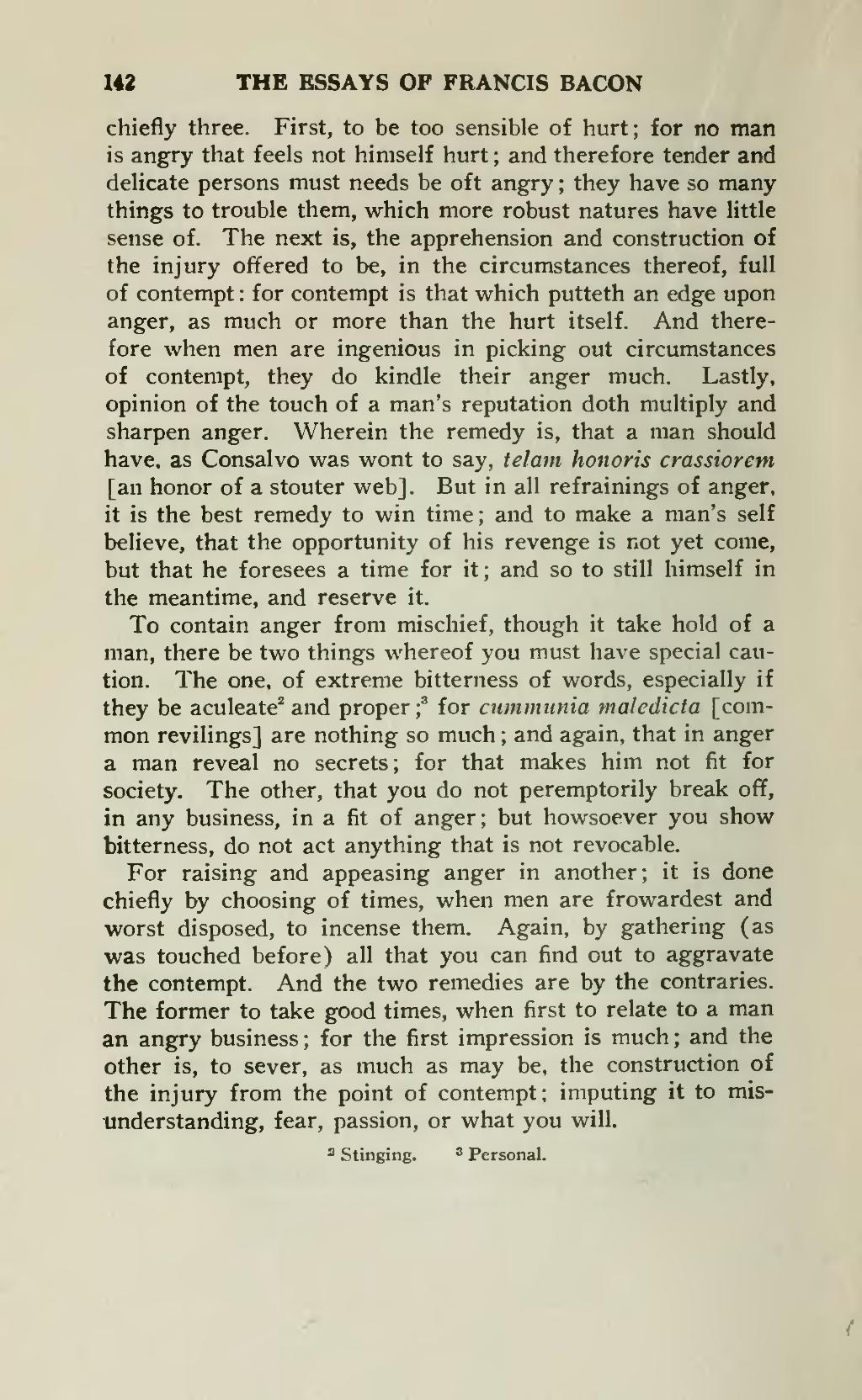chiefly three. First, to be too sensible of hurt; for no man is angry that feels not himself hurt; and therefore tender and delicate persons must needs be oft angry; they have so many things to trouble them, which more robust natures have little sense of. The next is, the apprehension and construction of the injury offered to be, in the circumstances thereof, full of contempt: for contempt is that which putteth an edge upon anger, as much or more than the hurt itself. And therefore when men are ingenious in picking out circumstances of contempt, they do kindle their anger much. Lastly, opinion of the touch of a man's reputation doth multiply and sharpen anger. Wherein the remedy is, that a man should have, as Consalvo was wont to say, telam honoris crassiorem [an honor of a stouter web]. But in all refrainings of anger, it is the best remedy to win time; and to make a man's self believe, that the opportunity of his revenge is not yet come, but that he foresees a time for it; and so to still himself in the meantime, and reserve it.
To contain anger from mischief, though it take hold of a man, there be two things whereof you must have special caution. The one, of extreme bitterness of words, especially if they be aculeate[1] and proper;[2] for cummunia maledicta [common revilings] are nothing so much; and again, that in anger a man reveal no secrets; for that makes him not fit for society. The other, that you do not peremptorily break off, in any business, in a fit of anger; but howsoever you show bitterness, do not act anything that is not revocable. For raising and appeasing anger in another; it is done chiefly by choosing of times, when men are frowardest and worst disposed, to incense them. Again, by gathering (as was touched before) all that you can find out to aggravate the contempt. And the two remedies are by the contraries. The former to take good times, when first to relate to a man an angry business; for the first impression is much; and the other is, to sever, as much as may be, the construction of the injury from the point of contempt; imputing it to misunderstanding, fear, passion, or what you will.
